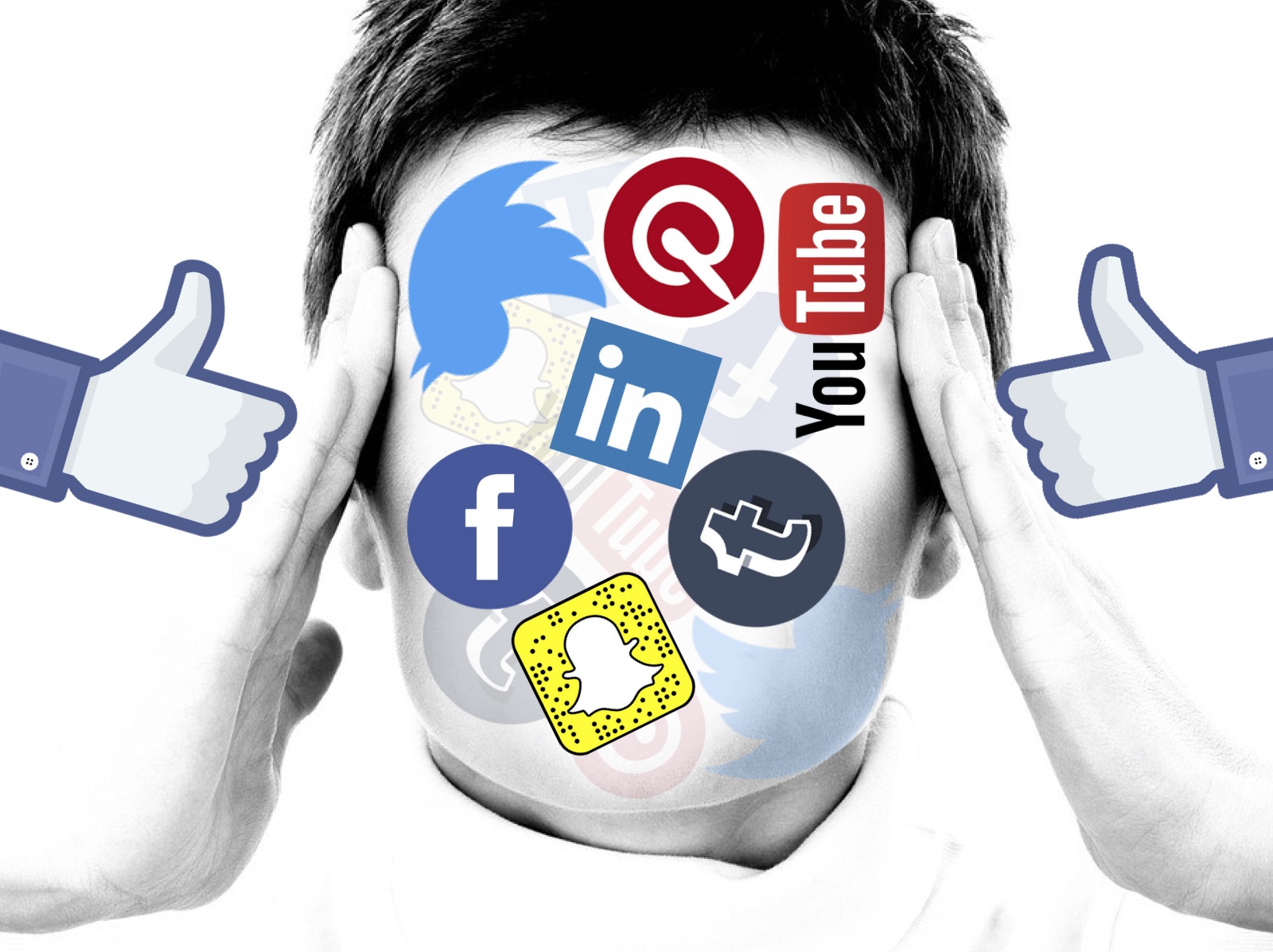Introduction
In an age dominated by technology, social media platforms like Facebook, Instagram, Twitter (now X), Snapchat, YouTube, and TikTok play an integral role in shaping our interactions and experiences. While these platforms offer various benefits, their impact on mental health is increasingly coming under scrutiny. Social media can foster connections and provide support, but excessive use can also lead to feelings of isolation, anxiety, and depression. This article explores the dual nature of social media, examining its effects on mental health, the phenomenon of social media addiction, and how to cultivate a healthier relationship with these platforms.
The Positive Aspects of Social Media
1. Connection and Community Building
Social media allows individuals to connect with family and friends worldwide, fostering relationships that may not have been possible otherwise. For instance, platforms like Facebook and Instagram enable users to share life events, photos, and updates, keeping loved ones informed and engaged. Moreover, social media offers a space for individuals to find communities centered around shared interests, hobbies, or experiences.
Example: Consider the case of a young woman who moved to a new city for work. By joining local community groups on Facebook, she quickly found friends with similar interests, alleviating feelings of loneliness and isolation.
2. Emotional Support

In challenging times, social media can serve as a valuable resource for emotional support. Online platforms provide spaces for individuals to share their experiences and seek help from others. This sense of community can be particularly beneficial for those dealing with mental health issues, such as anxiety and depression.
Case Study: A study conducted by the University of Michigan found that individuals participating in online support groups reported feeling less isolated and more understood than those who did not engage in such communities.
3. Raising Awareness and Advocacy
Social media serves as a platform for raising awareness about mental health issues, allowing individuals to share their stories and advocate for change. Campaigns like #MentalHealthAwareness have gained traction, educating the public about mental health challenges and encouraging open discussions.
Benefit: This increased visibility can lead to greater empathy and understanding of mental health issues, reducing stigma and encouraging individuals to seek help.
The Dark Side of Social Media
1. Social Media Addiction
The addictive nature of social media is a significant concern. Platforms are designed to capture attention, often leading users to spend excessive time scrolling through feeds. This compulsive behavior can have detrimental effects on mental health, fueling feelings of inadequacy and dissatisfaction.
Example: A young man finds himself spending several hours daily on Instagram, comparing his life to the curated images of others. Over time, he experiences increased anxiety and low self-esteem, feeling disconnected from reality.
2. Fear of Missing Out (FOMO)
FOMO is a common experience among social media users, exacerbated by constant updates about friends’ activities. The belief that others are having more fun can lead to feelings of envy and loneliness, which can negatively impact mental well-being.
Case Study: Research from the University of Pennsylvania indicates that individuals with high levels of FOMO are more likely to experience anxiety and depression, particularly among young adults who frequently check their social media accounts.
3. Cyberbullying and Online Harassment
The anonymity of social media can lead to harmful behaviors such as cyberbullying. Victims of online harassment often experience increased anxiety, depression, and feelings of isolation.
Example: A teenager who is bullied on social media may withdraw from both online and offline interactions, leading to a cycle of loneliness and despair.
The Psychological Impact of Social Media Use
The psychological effects of social media use are complex and multifaceted. Research indicates a strong correlation between heavy social media use and increased rates of mental health issues, including anxiety and depression.
1. Inadequacy and Comparison
Users often compare themselves to others based on the curated content they see on social media. This comparison can lead to feelings of inadequacy regarding one’s life or appearance, negatively impacting self-esteem.
Example: A woman scrolling through images of her friends’ vacations may feel discontent with her own life, despite having her achievements.
2. Isolation and Loneliness
Ironically, while social media connects individuals, it can also lead to feelings of isolation. Studies show that increased use of platforms like Facebook and Instagram is associated with heightened feelings of loneliness.
Case Study: A study conducted by the University of Pennsylvania found that participants who limited their social media usage to 30 minutes a day reported significant reductions in feelings of loneliness and improved overall well-being.
Signs That Social Media is Affecting Mental Health
Identifying the signs that social media use is impacting mental health is crucial for early intervention. Common indicators include:
- Neglecting Offline Relationships: Spending more time online than with friends and family can indicate an unhealthy reliance on social media.
- Comparing Yourself to Others: Frequent feelings of inadequacy or low self-esteem stemming from social media comparisons can signal an unhealthy relationship with these platforms.
- Experiencing Cyberbullying: If social media interactions lead to feelings of anxiety or distress, it may be time to reassess usage habits.
- Distraction and Decreased Productivity: Social media can disrupt focus, leading to challenges at school or work.
How to Foster a Healthier Relationship with Social Media
If you feel that your social media use has become detrimental to your mental health, consider the following strategies to cultivate a healthier relationship:
1. Limit Time Spent Online
Research suggests that reducing social media usage can significantly improve mental health. Consider setting daily limits on social media use or using apps that track and restrict your time online.
Benefit: By spending less time on social media, you can create more opportunities for meaningful offline interactions and activities.
2. Be Mindful of Your Motivations
Before logging on, reflect on your motivation for using social media. Are you seeking connection, information, or simply passing time? Mindful engagement can help you avoid mindless scrolling.
Example: If you find yourself logging on out of boredom, consider alternative activities such as reading a book or going for a walk instead.
3. Engage in Active Participation

Being an active participant on social media—interacting with friends, joining discussions, and sharing meaningful content—can enhance your experience. Passive scrolling may increase feelings of isolation, whereas active engagement fosters connection.
4. Prioritize Offline Relationships
Make a conscious effort to spend quality time with friends and family without the distraction of social media. Set aside regular time for face-to-face interactions, whether it’s meeting for coffee or engaging in shared activities.
Benefit: Strengthening offline relationships can enhance your overall well-being and provide essential social support.
5. Practice Gratitude and Mindfulness
Cultivating a mindset of gratitude can counteract negative feelings stemming from social media use. Keep a gratitude journal or practice mindfulness exercises to shift your focus toward the positive aspects of your life.
Example: When feelings of inadequacy arise while scrolling through social media, take a moment to list three things you’re grateful for, shifting your perspective.
Conclusion
While social media has transformed the way we connect and interact, its impact on mental health is significant and complex. Recognizing the benefits and drawbacks of social media is essential for navigating its influence on our well-being. By cultivating a healthier relationship with these platforms—limiting usage, engaging mindfully, and prioritizing offline connections—we can harness the positive aspects of social media while minimizing its potential harms. Ultimately, fostering authentic connections and prioritizing mental health can lead to a more balanced and fulfilling life in the digital age.




